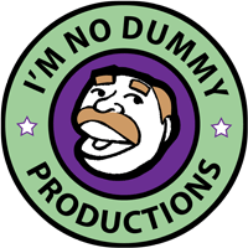What is the purpose of your work? Does the work you are doing serve a higher calling? I would argue that all work serves a higher purpose. Sometimes it’s just more obvious than others.
In light of the 12th anniversary of 9/11, let me share this example.
In September of 2001, I was a low level executive at AOL. My title was Director of Network Operations and the teams I managed were responsible for running the data center networks for both CompuServe and Netscape. (For those of you too young to remember, CompuServe was the pre-Internet Internet and Netscape was the original browser company. Go read your history e-books.)
The mission statement at AOL at that time read, ” To be as central to peoples’ lives as the telephone and television… and even more valuable.” On September 11, 2001, we lived up to that mission.
I have a vivid memory of one of my staff calling out from his office that an airplane had crashed into the World Trade Center building in NYC. We all scoffed and made cracks about some stupid pilot, assuming it was a small single-engine type aircraft. I walked down to the cafeteria where we had a TV playing CNN. It took several minutes for the reality of what had just happened to sink in. … And then the second plane hit. … Another pause. … And then years of conditioning kicked in.
I had been with CompuServe (pre-AOL) since 1992 – a relative short-timer. For its members, CompuServe had become a primary source of news for major events. When major events broke, those of us in the operations area of the company were used to monitoring usage and shifting systems around to ensure we had enough capacity on the systems serving the big news stories. The bigger the tragedy, the more scrambling we would have to do to shift user load.
After seeing the news for myself, I knew this was going to be huge and we needed to be prepared for a flood of activity. My reaction was to go back to my team, give them the quick update of what we knew at that time, and get them focused on monitoring the systems. For the rest of that day, we were heads down in our system monitors, watching, adjusting as needed, and keeping things running as smoothly as possible. The rush came and we rode through it.
It was several days later that we found out the true impact of the AOL service and its subsidiaries. If you recall, almost all normal communications within NYC were disrupted. Normal telephone lines were down. Cell phone service was largely out. The only thing left for so many people as a way to reach their friends and family was AOL, both email and IM (Instant Message). Story after story started to crop up of people being so thankful for AOL as they connected to their loved ones and confirmed they were OK.
Frankly, most of us at the company had never before realized the intense value that our service provided to our users. After that event, there was no doubt of the value we provided. Suddenly, all that hard work, the long hours, the late night pages notifying us of system issues, they made sense. We were providing something of value. And each of us, in our own way, were adding something to that, making a contribution. We mattered.
On this somber day of remembrance, I encourage you to consider the value, the higher purpose, that your work provides to others. For some of you this will be easy. For others, you may need to dig a bit to find it. But, I assure you, it’s there.
